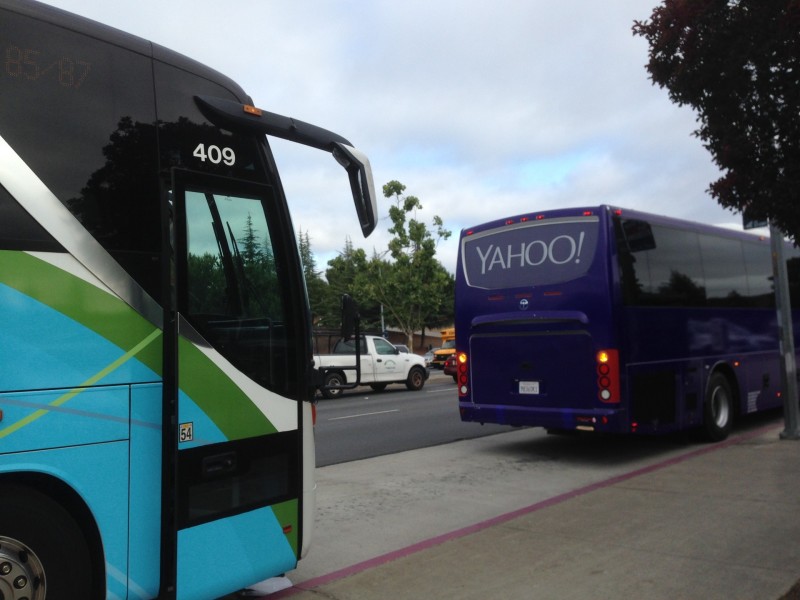Those terms included pay increases to $21-$25 an hour and rising to $22.50-$28.50 an hour in three years. On average, drivers now make $18 an hour. The terms also included shift differential pay and a six-hour minimum for drivers who don’t want to work split shifts.
“They want the playing field leveled. They want what Facebook Teamster shuttle bus drivers got earlier this year,” Bloch said.
If the drivers approve the proposed package, Compass will have to take it back to the tech companies for their approval. Bloch said that will be the biggest challenge.
“It’s going to increase the cost of doing business for Compass, so they’re going to want more from the tech companies,” he said. “And are the companies willing to shoulder the extra costs that come along with that?”
Bryan O’Connell, Compass senior vice president, said in an email: “Our negotiations with the Teamsters Local 853 are ongoing and we will continue to negotiate in good faith to find a solution that is workable for our clients, our employees and Compass.”
Saturday’s vote comes against the background of a growing labor movement in Silicon Valley. A coalition of labor unions, faith leaders and community-based organizations has been orchestrating a campaign to improve wages and benefits for service workers.
Under the name of Silicon Valley Rising, they have been holding demonstrations in front of tech companies and their vendors, supporting worker legislation and promoting livable wages, affordable housing and corporate responsibility.
On Monday, more than 140 workers at Google Express in Palo Alto filed to join the Teamsters. These workers receive goods, break them down and package them to be delivered to customers who buy things through Google shopping.
The employees make between $13 and $17 an hour with no benefits, Bloch said. They are employed by Adecco, a staffing agency based in Jacksonville, Fla.
Bloch charged that there isn’t job stability. Google Express employees, he said, work for a year and then are notified in a mass email about whether they will be employed the next year. “After two years, they are let go,” he said.
A spokeswoman for Google said in an email that the company won’t comment on Google Express employees’ plans to unionize. Adecco didn’t return phone calls.
Bloch said he expected a union vote in late August.

